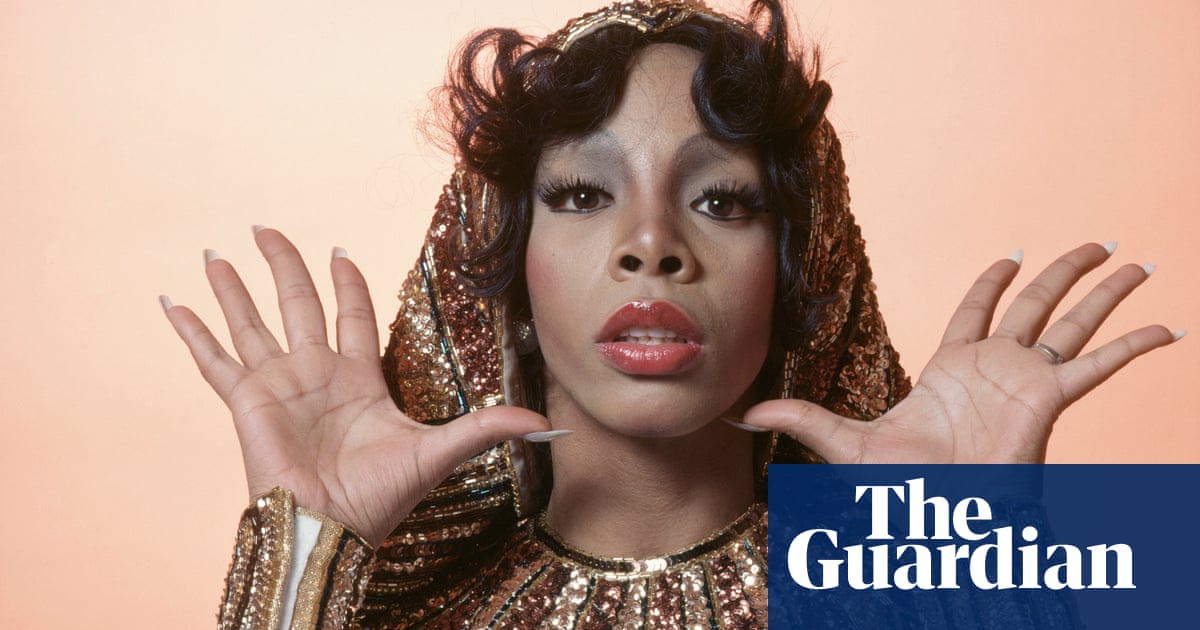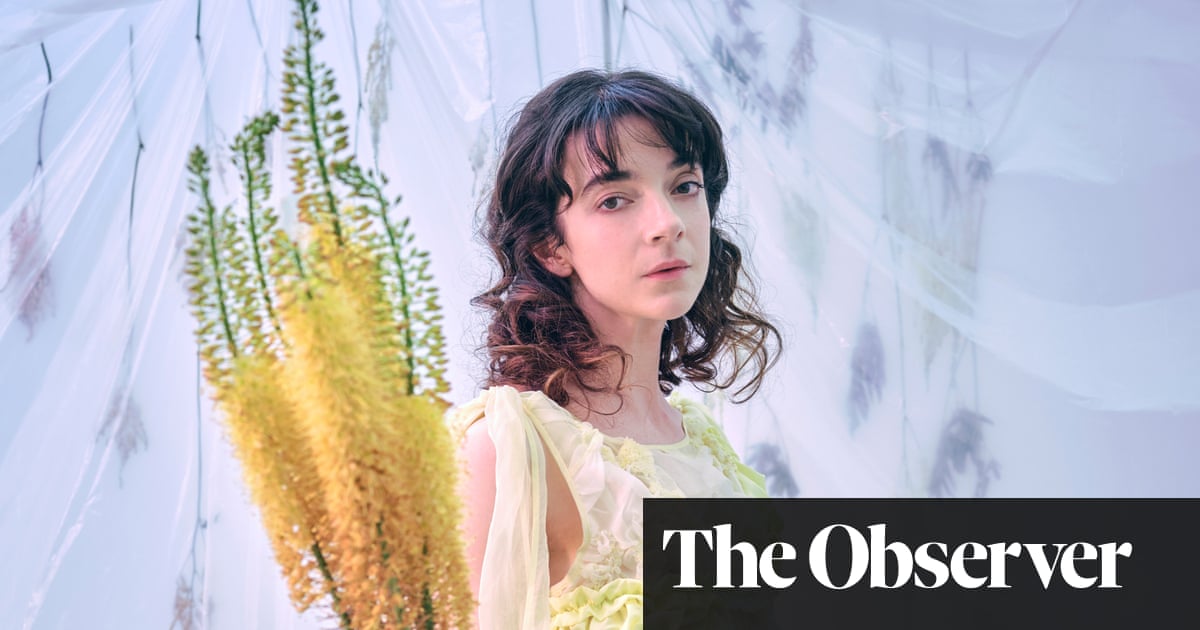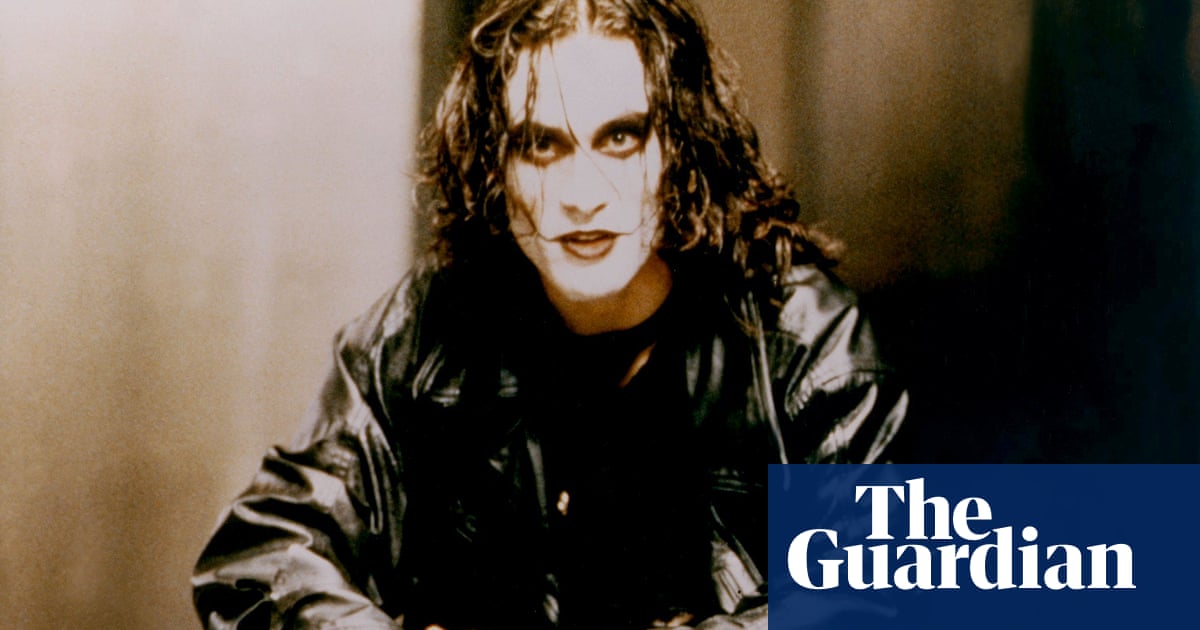
t is a strange feeling looking back at a much earlier version of yourself on television, a queasy mixture of recognition and distance, approval and shame, and above all an inescapable question: who is this plonker? Bespectacled, gawky, socially awkward and only 23 years old, I had been a surprising choice as a correspondent on Michael Moore’s TV Nation, a US network show where I stumbled around the wilds of America meeting extremists of various stripes: klansmen, cult members, sexual adventurers.
Later, based on these segments, I landed my own TV series, Louis Theroux’s Weird Weekends. For some reason the BBC had insisted on putting my name in the title. Watching some of my early efforts again recently, with the distance of two decades, I couldn’t help passing judgment on the journalistic competence on display – whether I was asking the right questions of the porn performers and the apocalypse preppers. Sometimes I caught myself enjoying the raw, unvarnished reality and marvelling at how much we had managed to capture on tape. From time to time I saw the younger me as overly pushy and badgering, or in danger of being borderline rude. But I could see that was mostly from my awkwardness at being hired for a job I didn’t fully understand, and my worries about letting people down. Mainly I was distracted by my appearance, voice and how I came across. The way my hair is piled on top of my head. The faint mid-Atlantic twang in my accent.
I was definitely a little bit of a tool, but what was harder to know was whether that was an obstacle or part of my gift.
I was watching my old shows back recently not for simple nostalgia – though that would have been a good enough reason given how much has changed – but because I was faced with the more practical question of how to continue doing my job under lockdown. When the world shut down in March, a series of programmes I was working on was suddenly no longer feasible due to travel restrictions. I had a team ready to work but no projects. I made a podcast, Grounded With Louis Theroux. But I am a TV maker. What documentaries were possible that didn’t involve me leaving the house?
Quite quickly, the idea of a retrospective show came up. The TV equivalent of a greatest hits album. Take the best bits from old programmes and link them together somehow using voiceover or maybe an interview with a director. The grammar could be figured out at a later stage. It was something we had thought about doing for a while – 2019 marked 25 years since I had started my career in television – but we never got round to it. But that was the pre-Covid thinking. In a world re-made by a virus, one of the many things that has changed is the appetite for archive-based television. Would we make four instead of one, the channel asked. Wow. OK. And like that, we went to work on an ambitious career retrospective with the title – dreamed up by me, and only partly because I secretly hoped it evoked subliminal thoughts of David Attenborough – Louis Theroux: Life on the Edge.
Boiling down more than 50 hours of TV – not to mention the hundreds, maybe even thousands of hours of raw footage – turned out to be about as hard as you might expect. For a while I imagined it might be some kind of self-deconstruction of our processes. “An Adam Curtis kind of thing,” we airily said. “Show the bits you never see. The producer in shot. Programmes we never made.” This idea quickly evaporated in the heat of having to make a documentary that featured material viewers might actually want to see and that made some kind of sense. Instead we chose four themes that might impose an order on the material: belief, family, crime and the dark side of pleasure.
These themes, while they were come by in a spirit of pragmatism, ended up giving us a coherence and cumulative logic that ended up being one of the greatest and most pleasurable discoveries of the whole process. Without realising it or intending it, it turns out the films I’ve been involved in making have captured a portrait of a changing culture, an oblique cultural history seen through the eyes of the people I have documented. This is true in obvious ways: given that I’ve made several films in jails and prison, and several others that involved immersion in police forces in major cities, it shouldn’t be surprising to look back and see the pre-history to the killing of George Floyd and the reaction to it, and the myriad ways in which they were both predicted and prefigured. What was more surprising was the way in which some of my older programmes contextualised and maybe explained the Trump phenomenon. The first episode of the series, about belief, features an Idaho-based second-amendment diehard with a penchant for apocalyptic conspiracy theories; an elderly man with weird hair who’s in touch with UFOs; a neo-Nazi family; and a Vegas-based self-advertised multimillionaire and get-rich-quick guru. Having watched all these unlikely characters for 55 minutes, somehow when Donald Trump pops up at the end of the programme it is with an almost eerie feeling of inevitability.
I also wanted to update stories by looking at what happened next – to the worlds they showed and the people involved in them. To an almost morbid extent, I circle around stories after completing them – I find it hard to let go and move on. Sometimes I stay in email contact with old subjects, or my team check in with them. Making Life on the Edge meant I had a reason to share the surprising developments in stories I had been tracking for years and also to reach out to other contributors I had long been curious to catch up with. Megan Phelps-Roper – who left the hate-spewing Westboro Baptist Church, founded by her grandfather Fred Phelps – has become a friend. She has published a book about her experiences and does talks on how to build bridges and communicate with people on the extremes (or simply people who disagree with you) in a way that they will hear. I spoke to her during the lockdown and we included a small portion of the conversation in the new series. I also spoke with JJ, the porn performer from Weird Weekends. He says he doesn’t regret a minute of being in the industry, describing it as an enriching and important part of his life. What you might think would be self-destructive, can sometimes end up being lifesaving.
Of the various updates, one of the most moving for me, personally, was one I did about the aforementioned UFO believer with weird hair: the Rev Robert Short. Short was a “space channel”, meaning he could summon the personality of an entity, called Korton from the planet Koldas, and he would prognosticate in booming tones from an outbuilding at his unassuming house on the outskirts of Cornville, Arizona. I first saw him channel back in 1997, for a programme about aliens. It was a moment of comedy in the finished film. The weirdness of the voices and mannerisms and the outlandishness of Short’s claims couldn’t help coming across as funny. He died late last year, but we found some extraordinary footage that shows him, a year or two ago, though enfeebled and poignantly reduced, still channelling his alien friend. It’s almost as though he’s beaming to me from beyond the grave, and so, in a short space in the film we go from finding him amusing and maybe even ridiculous, to seeing him in a way that is wistful and rather moving.
I suppose this ability to see a contributor in a new, more three-dimensional way brings up the question of changes in me. When I look at my own motivations and my own journey, I am forced to face the negative alongside the positive: a tendency, when younger, to maybe be glib, to disarm with the aim of making light of people’s deeply held beliefs, to act the clown, to make fun. That was part of how I saw my role, to be the straight man in a weird world, and there were times, looking back, when I see I may have gone too far. I also acknowledge my own sense of attraction to the dark side – the darkness of misguided beliefs and self-destructive behaviours. But – as I comment at the end of the programme dedicated to the dark side of pleasure – the aim of life shouldn’t be to avoid mistakes, to be sober, righteous and godly in everything, to be pious and upstanding and utterly bland. You have to wrap your arms around the whole of life, and – at the risk of sounding like my Las Vegas self-help guru friend – view your missteps as an important part of your journey.
And it may be my mistakes – or at least the challenges I endured in order to change – that, looking back, I’m most attached to, because they suggested the possibility of doing things differently. After 25-plus years of doing my job, what strikes me is the development and evolution that has taken place. When I started out in 1994, it would have seemed ludicrous to imagine having the maturity, sensitivity and storytelling chops to make programmes about disability, mental health and addiction. Yet these are the themes that have dominated my most recent programmes – subjects such as eating disorders, dementia and brain injury. They sprang from a process that begun in 2011 when, stuck for subjects to cover, I made a documentary about dementia, even though I knew that for the first time I would be making a documentary in which no one was making a wrong or questionable choice. The success of that episode, and the pleasure of making it, led to other documentaries about families and relationships under stress from forces outside their control. They feature most in the final episode of our new series, about family. They involve people who are in different way vulnerable, struggling and doing the best that can as they battle the vicissitudes of fate. It’s a film that is, more than any of the others, about love. The rewards it brings, the emotional enrichment, how much we suffer in the course of preserving it and nurturing it, and the risk it entails: the possibility that in giving your heart away, it will be hurt.
In The Importance of Being Earnest, Oscar Wilde defines fiction as requiring that the good end happily and the bad unhappily. It turns out, surprise surprise, the world isn’t like that. Making my programmes has been among other things, a reminder – were it needed – of how unfair life is, how hard many people have it and how much they have to overcome. Doing the work of documentary-presenting about people and worlds that are in different ways on the edge has left its marks on me, too. But so has 25 years of living, marrying, having children, moving countries, taking out the rubbish, loading and unloading the dishwasher, fighting with those close to me, failing in small duties, succeeding in others and performing the multitude of rituals that make up the bulk of what it is we call life. As I look out, with these eyes, with these thoughts, I don’t notice myself being so very different. I feel like the same person. The texture of my mind and my thought hasn’t changed. It is mainly when I see myself on screen that I see the change. I’m 50 now. The ravages of the ageing process have left their mark. My hair is grey, my eyes don’t work as well as they used to, my knees are going.
If I looked like a plonker before, now I look like an old plonker. Maybe that’s progress.
Louis Theroux: Life on the Edge is on BBC Two next month












